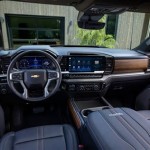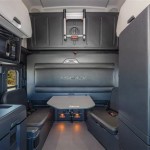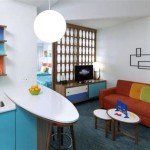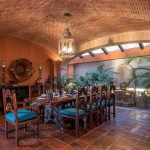Interior Restaurant Design: Crafting the Dining Experience
Interior restaurant design transcends mere aesthetics; it is a strategic tool that significantly impacts customer experience, operational efficiency, and overall profitability. A well-designed restaurant interior creates a specific ambiance, reinforces the brand identity, and influences customer behavior, all of which contribute to a thriving business. Ignoring the intricacies of interior design can lead to a disconnect between the restaurant's concept and its physical environment, potentially hindering its success. Therefore, a comprehensive understanding of the key principles and elements involved in restaurant interior design is essential for any restaurateur aiming to create a memorable and profitable dining establishment.
The design process typically involves meticulous planning and collaboration between the restaurant owner, interior designer, and potentially, architects and contractors. This team works together to translate the restaurant's concept into a tangible reality, considering factors such as the target audience, menu offerings, budget constraints, and local regulations. The design must be functional, aesthetically pleasing, and compliant with safety and accessibility standards. Furthermore, it should be adaptable to changing trends and operational needs, ensuring the long-term viability of the restaurant.
Understanding the Core Elements of Restaurant Interior Design
Several core elements are fundamental to effective restaurant interior design. These elements work in synergy to create a cohesive and harmonious environment that enhances the dining experience. Paying close attention to each element is crucial for achieving the desired atmosphere and functionality.
Space Planning and Layout: This is arguably the most important element. A well-planned layout optimizes traffic flow, maximizes seating capacity, and ensures efficient service. The arrangement of tables, chairs, booths, and service stations directly affects the movement of staff and customers. Considerations include the size and shape of the space, the number of anticipated diners, and the desired level of privacy and intimacy. A poorly planned layout can lead to overcrowding, bottlenecks, and frustrated customers and staff, ultimately impacting the restaurant's efficiency and reputation.
Factors like table spacing are critical. Too little space hinders movement, while too much creates a feeling of emptiness. The placement of the kitchen, restrooms, and waiting area also influences the overall flow. Accessible design is also paramount, ensuring inclusivity for all patrons by adhering to accessibility guidelines. Digital tools and simulations are often used to visualize and refine the layout before construction begins.
Lighting Design: Lighting plays a significant role in shaping the ambiance and influencing mood. The type, intensity, and placement of lighting fixtures can transform a space from bright and energetic to intimate and romantic. Layered lighting, combining ambient, task, and accent lighting, is often employed to create a sophisticated and versatile environment. Ambient lighting provides overall illumination, while task lighting focuses on specific areas, such as tables or workstations. Accent lighting highlights architectural features or artwork, adding depth and visual interest.
The careful selection of lighting fixtures is crucial. Chandeliers, pendant lights, recessed lighting, and wall sconces can all contribute to the overall aesthetic. The color temperature of the light also affects the mood. Warmer tones create a cozy and inviting atmosphere, while cooler tones can feel more modern and energizing. Dimming controls allow for flexibility, enabling the restaurant to adjust the lighting levels to suit different times of day and events.
Material Selection and Finishes: The materials and finishes used in the interior design significantly impact the look, feel, and durability of the restaurant. Choices range from flooring and wall coverings to furniture upholstery and decorative accessories. The selection process should consider the restaurant's style, budget, and maintenance requirements. Durable, easy-to-clean materials are essential for high-traffic areas. The materials should also complement the overall design aesthetic and contribute to the desired atmosphere.
For example, natural materials like wood and stone can create a rustic and organic feel, while sleek metal and glass finishes convey a more modern and sophisticated look. The color palette also plays a critical role in establishing the mood. Warm colors like reds and oranges can stimulate appetite, while cooler colors like blues and greens can create a calming and relaxing atmosphere. Texture is another important consideration, adding visual interest and tactile appeal to the space. Acoustical considerations should also dictate some material choices. For example, strategically placed sound-absorbing panels can mitigate noise levels, fostering a more comfortable dining experience.
Branding and Thematic Consistency
The interior design should seamlessly integrate with the restaurant's branding and thematic concept. This involves translating the brand's values, identity, and story into the physical environment. The design should reinforce the message the restaurant is trying to convey to its customers.
For instance, a casual dining restaurant might opt for a bright, inviting, and family-friendly atmosphere. This could be achieved through vibrant colors, comfortable seating, and playful decorative elements. In contrast, a fine-dining establishment might choose a more elegant and sophisticated design, utilizing muted colors, luxurious materials, and refined lighting. The menu offerings should also be reflected in the interior design. A seafood restaurant might incorporate nautical themes and coastal-inspired décor, while an Italian restaurant might feature rustic elements and warm, earthy tones.
Branding elements, such as the logo, color scheme, and typography, should be consistently applied throughout the interior design. This creates a cohesive and recognizable brand experience. The overall design should be memorable and distinctive, helping the restaurant stand out from its competitors. Subtle cues, such as the choice of music and scent, can also contribute to the overall ambiance and reinforce the brand identity.
Furthermore, the staff's uniforms should align with the restaurant's branding. The uniforms should be comfortable, functional, and stylish, reflecting the overall aesthetic of the restaurant. All these elements working together create a holistic brand experience that resonates with the target audience and fosters customer loyalty.
Functionality and Operational Efficiency
Beyond aesthetics, the interior design must prioritize functionality and operational efficiency. The design should facilitate smooth service, minimize waste, and maximize productivity. This requires careful consideration of the layout, equipment placement, and storage solutions.
The kitchen layout is crucial for efficient food preparation. A well-designed kitchen should be organized into zones, with designated areas for food storage, preparation, cooking, and dishwashing. The placement of equipment should minimize movement and streamline the workflow. Adequate storage space is essential for keeping ingredients and supplies organized and accessible. The dining area should also be designed to facilitate efficient service. Serving stations should be strategically located to minimize travel distances for servers.
Considerations like the placement of POS (Point of Sale) systems, the layout of the bar area, and the accessibility of restrooms all impact operational efficiency. Durable and easy-to-clean surfaces are essential for maintaining hygiene and minimizing maintenance costs. The design should also consider the flow of delivery drivers and waste disposal procedures. Energy-efficient lighting and appliances can help reduce operational costs and minimize the restaurant's environmental impact.
Ultimately, a functional and efficient interior design contributes to a smoother operation, reduced costs, and improved customer satisfaction. By carefully considering the operational needs of the restaurant, the interior design can play a vital role in its overall success. Integrating technology seamlessly is also crucial. From digital menus to online ordering kiosks, technology can enhance the customer experience and streamline operations. The design should accommodate these technologies without compromising the aesthetic appeal of the space.
In conclusion, effective restaurant interior design is a multifaceted process that requires careful planning, attention to detail, and a deep understanding of the restaurant's concept, target audience, and operational needs. By considering the core elements of space planning, lighting design, material selection, branding, and functionality, restaurateurs can create a dining experience that is both memorable and profitable. A well-designed interior is an investment that can significantly enhance the restaurant's success, attracting customers, fostering loyalty, and driving revenue.

21 Restaurant Interior Design Ideas For 2024 Touchbistro
21 Restaurant Interior Design Ideas For 2024 Touchbistro

10 Tips For Designing Your Restaurant Interior Modern Management The Business Of Eating News

Restaurant Interior Design 7 Things To Consider When Designing One

Restaurant Interior Design Ideas Using Panels Rulon International
21 Restaurant Interior Design Ideas For 2024 Touchbistro

8 Stunning Ideas For Classic Modern Restaurants Interior Design Inspiration Brabbu Forces

Creative Restaurant Design Taking It From Old To Modern Mindful Consulting

Cafe Interior Design Ideas Low Cost Restaurant Decor Foodiv

Restaurant Design Interior Designers








